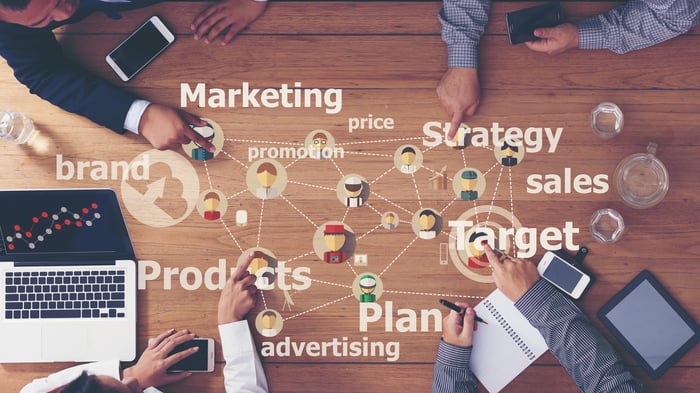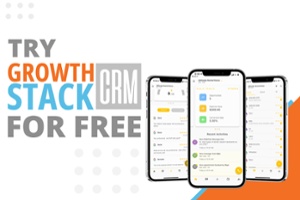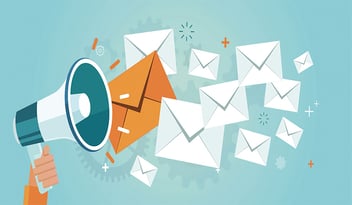How Is Industry 4.0 Making Marketing More Customer-Centric
In today’s customer-centric world, customers have more options available to them than ever before.
Technological advances have brought about higher expectations and demands. They have also provided a whole new set of opportunities for companies to better track customer behavior and provide a better customer experience.
To keep customers happy, organizations have to continuously employ cutting-edge technology that gives their customers what they want, when they want it. Failure to do so will eventually result in a mass exodus towards the competition.
Industry 4.0 has created a digital disruption that has changed and continues to change customer behavior.
However, to become a customer-focused organization, it is not enough to employ the latest technologies. It’s crucial to make sense of all the data available and use it wisely to create memorable marketing campaigns.
Industry 4.0 & Customer-Centric Marketing
Industry 4.0 is often referred to as ‘The Fourth Industrial Revolution’ and ‘Smart Manufacturing’ because it integrates innovative technologies and machinery to optimize the entire manufacturing process.
This implementation and integration have allowed manufacturers to deliver a better product experience for their customers, from product design to disposal at the end of the product life cycle.
Consequently, Industry 4.0 has also created a better marketing and onboarding experience for businesses across various industries. The ability to collect and analyze data regarding purchasing behavior helps marketing departments supply the right message to the right people at the right time.
Marketing campaigns can now be created and optimized around the entire customer journey, from brand awareness to product delivery and beyond.
Moreover, they are now more proactive compared to traditional methods. This means that marketers can actively reach out to customers even before the customer has a chance to look elsewhere for a product or service they need.
Specific Ways Industry 4.0 Has Improved
Industry 4.0 has allowed marketers to become more customer-centric in three distinct ways:
- Seeing the customer’s point of view
- Not upsetting customers
- Collecting the right metrics to gauge customer behavior
Customer’s Point of View
The best marketing campaigns make the customer feel like the product, service, or solution was made just for them.
Before the advent of digital technology, this was often a hit and miss endeavor. Now the data on latest trends, keyword searches, and shopping patterns have made it easy for marketers to figure out what the customer is thinking and what they want at this exact moment.
When businesses have such unique insights on the customer’s preferences and interests, they can create marketing messages that speak to the customer’s deepest values.
In the age of social media, gathering data on what brands the customer interacts with or what kind of content they engage with greatly eliminates the guessing game for marketers.
Creating Happy Customers
The best way to create a happy customer is to not upset them.
One of the biggest complaints customers have is having to wait too long to get their questions answered. Over $62 billion are lost annually due to poor customer service.
Technologies such as smart chatbots can answer customer questions quicker and more reliably than their human counterparts, offering a better onboarding experience.
Moreover, using common search queries and questions directed at sales and support teams provides a more complete image of what customers need to know about a product before making a purchase. Depending on the buyer's stage, this can be integrated into marketing messages that guarantee a higher conversion rate.
Collecting The Right Metrics
The ability to collect vast amounts of customer data is invaluable to marketing. The ability to sift through that data and analyze the information that matters most is even more important.
As customers interact with a business’s online properties (i.e., website, blog, store), their habits, locations, and preferred content can be collected and segmented with Industry 4.0 technologies.
Collecting, and more importantly, segmenting the data needed to design personalized marketing campaigns not only increases conversions but also helps build a more loyal customer base for the future.
Specific Technologies That Help Create Customer-Centric Campaigns

Industry 4.0 technologies offer a vast array of tools and opportunities such as high connectivity, data analysis, Artificial Intelligence (AI), and the Internet of Things (IoT).
These tools and capabilities enable businesses to make quicker and more accurate decisions across many business processes, including production, marketing, sales, and product delivery.
This is especially true in sales and marketing, where such tools have made the connection, collection, and analysis of customer behavior easy to manage and observe.
The following are three examples of Industry 4.0 tools that have enabled businesses to become more customer-focused.
E-Commerce Platforms
As of 2020, there are currently 20 million e-commerce sites online.
Aside from being able to reach and offer products to a broader audience, e-com platforms can gather customer lifecycle information and detect customer behavior patterns over a long period.
Most popular products, customer preferences, and seasonality spikes in demand are just some of the data that can be collected by these platforms.
Of particular interest is the influence e-commerce platforms have had in ushering in a brand new form of data analysis known as Predictive Marketing Analytics.
E-commerce platforms can help businesses predict future events and results more accurately using historical and transactional data. This invariably helps businesses design marketing campaigns keeping the most recent and long-term behavior patterns in mind. Key products can be placed in front of customers when they are most likely looking for it.
This creates new and unique upselling opportunities. For example, based on the purchasing history, marketers can identify the right time to offer spare parts, refills, or additional services like maintenance.
AI Tools
It is hard to believe that artificial intelligence has been around since 1956. However, it is not hard to believe that AI technologies have improved the way organizations do business.
AI helps businesses increase sales, improve customer experience, detect fraud, and assist in predictive analysis.
As far as marketing is concerned, marketing teams now use AI applications such as machine learning to make automated decisions based on data collection, data analysis, audience behaviors, and economic trends.
One such example is using AI to gather data from customer profiles to uncover the most optimal communication form to use in marketing messages and the most appropriate time to use them.
And since team members do not have to guess what they should say, and when they should say it, less testing needs to be done. This ensures increased campaign ROI, better customer relationships, clearer marketing metrics and measurements, and quicker decision making.
IoT Technology
IoT is a system consisting of a collection of internet-connected objects that collect and transfer data over a wireless network. The objects can be varied and often seem unrelated. Still, they are interrelated in how they collect, transfer, and use data to optimize tasks.
IoT devices have helped many organizations increase their efficiency and uncover new insights. This is due to its ability to record and transfer data across various devices such as security equipment, factory equipment, health monitors, and a host of other machinery affecting business processes.
In the realm of marketing, IoT has allowed marketing teams to capture data and respond to customer needs with the right message, at the right time, and on the right device.
Today, businesses and marketing teams use IoT in a variety of ways. For example:
- Analyzing customer habits and behaviors across all the platforms and devices they use
- Uncovering which stage of the ‘buying journey’ customers are currently in
- Promoting real-time advertisements in the form of push notifications and contextual ads
IoT devices enable businesses to collect granular data on customers, such as at what times and at what locations they are using a particular device. Moreover, sensor-equipped devices can transmit data on the conditions in which a product is used in the real world.
Customer-Centric Marketing is Smart Marketing
Industry 4.0 has brought many beneficial changes in the way organizations do business, especially the way they engage with their customers.
Today’s businesses can form and deliver their marketing messages to their audience in a way that is pleasing to their customers.
Customer-centric marketing allows marketing teams to get a closer look at what the customer is thinking and looking for. In other words, it has taken the guesswork out of figuring out what the customer really wants.
The final outcome is marketing campaigns that put customer needs first, creating happier customers and a more loyal customer base.
Joe Peters is a Baltimore-based freelance writer and an ultimate techie. When he is not working his magic as a marketing consultant.
This incurable tech junkie devours the news on the latest gadgets and binge-watches his favorite TV shows. Follow him on @bmorepeters
Bring Cutting-Edge Technology To Your Business’s Marketing
Interested in implementing a Chatbot, marketing automation, and sales automation into your marketing strategy? From automated lead-nurturing email series and segmentation to Chatbot conversations and sales templates, we combine the high-tech features of HubSpot with clear messaging.
Schedule a free strategy session to learn more.






